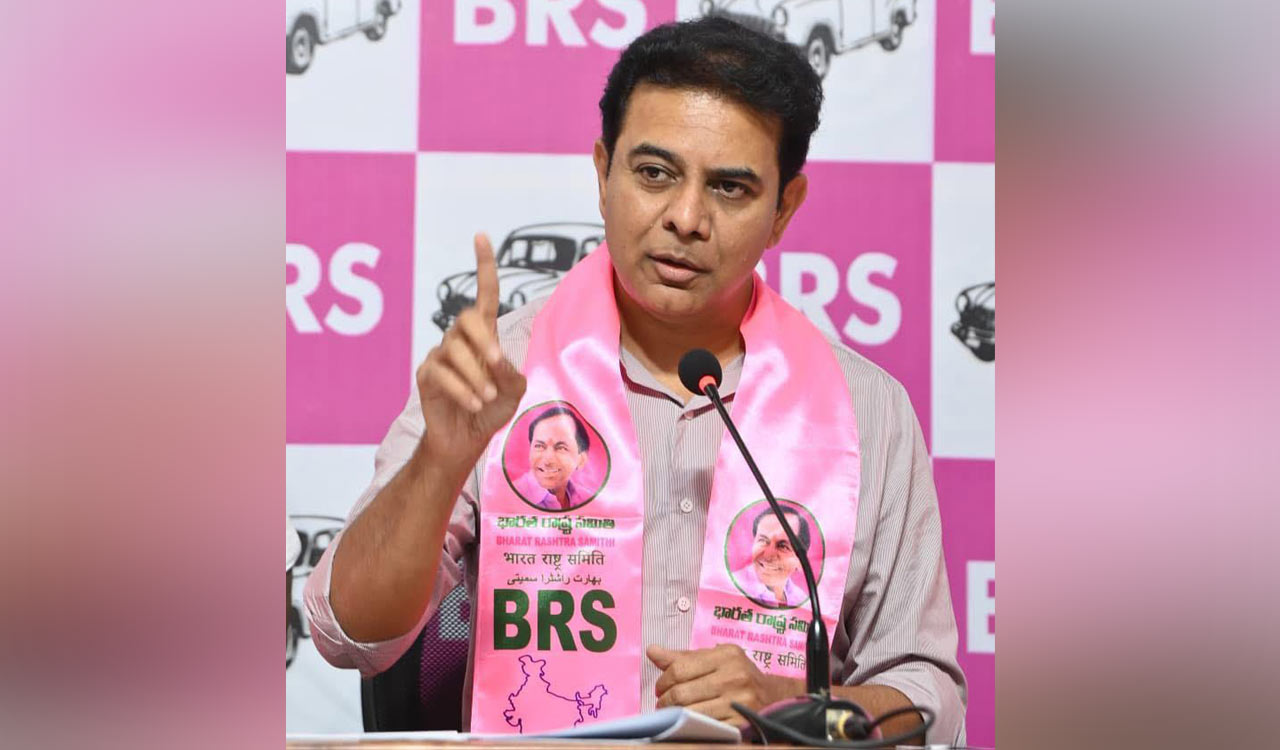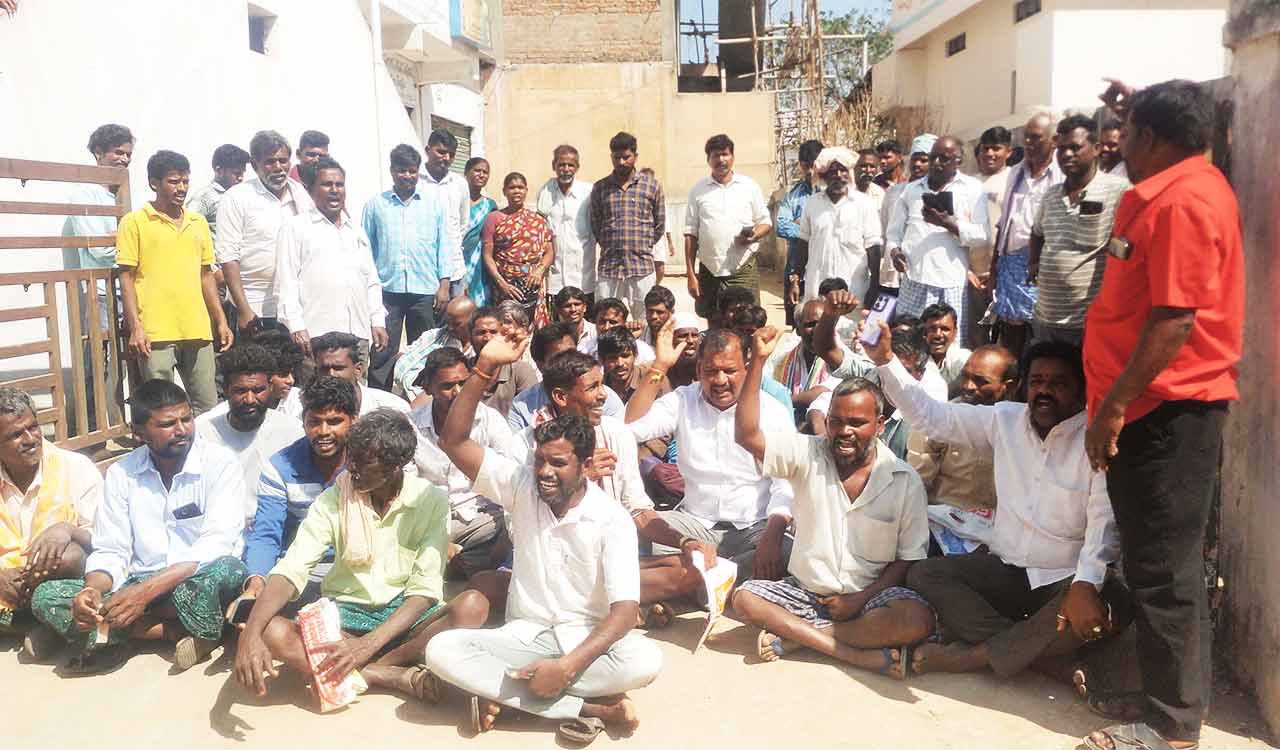Telangana urea crisis: Farmers continue to endure long waits as government assurances fall short
Farmers in Telangana, particularly in Suryapet and Narayanpet, face severe urea shortages, queuing overnight at PACS centers. Despite government assurances and token-based distribution, long waits, black-market sales, and technical glitches continue, threatening a 10–15 per cent drop in Kharif crop yields

Hyderabad: Farmers across the State, including Suryapet and Narayanpet districts, continue to face acute urea shortages, despite repeated assurances from the State government that supplies are being streamlined. The crisis has left farmers, including women and children, waiting in long queues from midnight at Primary Agricultural Cooperative Societies (PACS) and other distribution centers, often returning empty-handed or with insufficient quantities.
The situation, continuing to be the same for over a month, has sparked widespread frustration and protests, with farmers alleging that government promises have amounted to little more than lip service. In Narayanpet district’s Marikal mandal, at the Teeleru PACS office, farmers, including women and children, have been camping out since midnight, braving hunger and exhaustion in hopes of securing urea.
“We come here with our families, waiting for hours, but there’s no urea. This has been going on for a month,” said a distressed woman farmer. Similar scenes unfolded in Maddur town, where farmers lined up from midnight on Sunday, only to receive tokens for limited urea distribution on Monday under police supervision.
In Suryapet district, farmers at the Mana Gromor center and other PACS outlets faced similar struggles, with many resorting to placing slippers in queues to hold their spots. Those with larger landholdings, such as 20 acres, expressed anger over receiving only two 45-kg bags of urea, far below their needs, raising fears of significant crop losses.
The State government claimed to have made efforts to address the crisis, stating that Telangana secured an additional 40,000 metric tonnes of urea in August due to state pressure on the central government, with arrangements for 10,000 metric tonnes to be supplied daily by various companies. The shortages were attributed to global geopolitical issues disrupting urea imports and inadequate domestic production.
The State government has introduced measures like issuing tokens, setting up 500 Rythu Vedika centers for urea sales, and deploying ePOS machines with trained staff to ensure smooth supply. Agriculture Minister Thummala Nageswar Rao claimed that these steps led to some improvement, with the first day of distribution at Rythu Vedika centers proceeding without major disruptions.
However, farmers on the ground paint a starkly different picture. Despite the government’s claims of adequate measures, long queues, rationing, and allegations of black marketing persist. In Suryapet, farmers reported urea being sold at inflated prices of Rs. 350–400 per bag on the black market, compared to the subsidized rate of Rs. 266.50.
In Narayanpet’s Kosgi, part of the Chief Minister’s constituency, farmers staged protests over the lack of supply, highlighting the severity of the crisis even in politically significant areas. Technical issues, such as faulty fingerprint machines and OTP errors at PACS centers, have further compounded the problem, leaving tenant farmers and those without Aadhaar cards particularly vulnerable.
The opposition, particularly the Bharat Rashtra Samithi (BRS), has accused the Congress-led state government of mismanagement, alleging that urea is being diverted to the black market. BRS leaders have organised protests, including road blockades and dharnas, in support of the farmers in crisis. Farmers warn that the ongoing shortage threatens a 10–15 per cent drop in yields for critical Kharif crops.
As farmers continue to endure sleepless nights and long waits, the State’s assurances of improved supply and streamlined distribution have done little to alleviate their distress. With the Kharif season at a critical stage, the government’s promises are being seen as mere rhetoric. The farmers call for immediate and effective action addressing the gap between demand for urea and its supply.
Related News
-
Young woman YouTuber in Manikonda ends life after breakup, probe underway
10 mins ago -
PM Narendra Modi congratulates Vijay Deverakonda, Rashmika Mandanna
10 mins ago -
Watch: Nani’s fierce new avatar unveiled in ‘The Paradise’ song ‘Aaya Sher’
20 mins ago -
Intelligence agencies assess renewed efforts to destabilise Punjab through tactical escalation
21 mins ago -
China restricts exports to 40 Japanese entities with ties to military
30 mins ago -
Autorickshaw overturns near Mallapur in Jagtial, students injured
31 mins ago -
Madhuri Dixit experiences the world’s busiest street – Shibuya Crossing in Japan
47 mins ago -
KTR condemns felling of 200 trees in Mahabubnagar, demands action
57 mins ago




